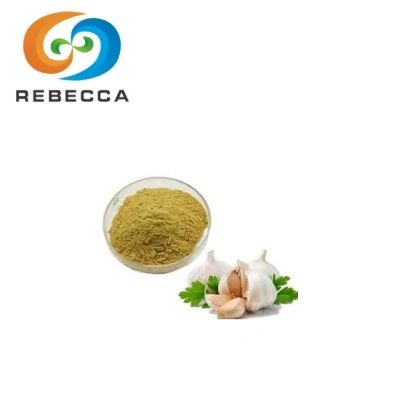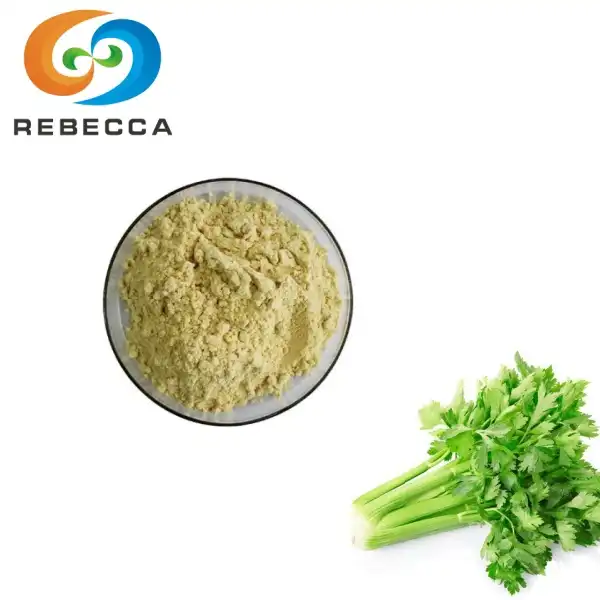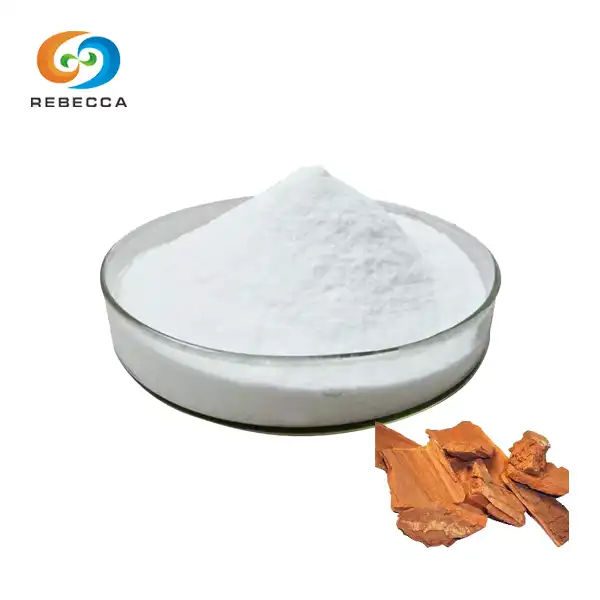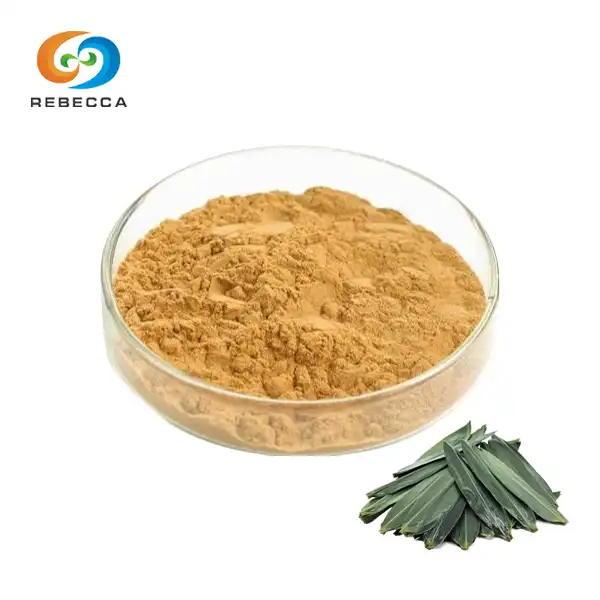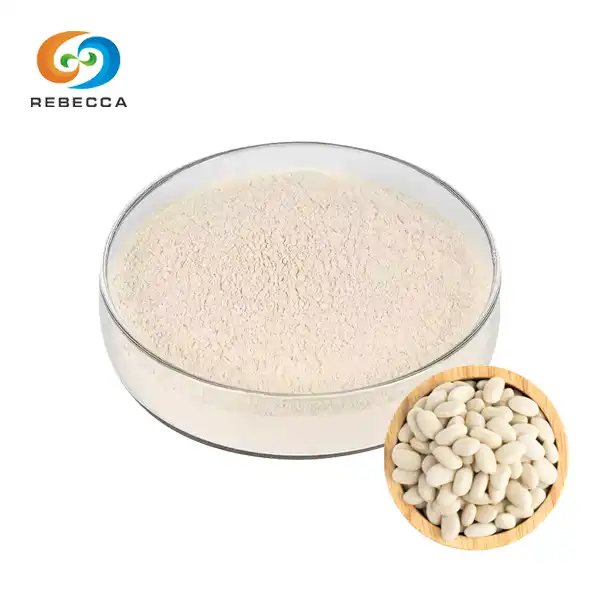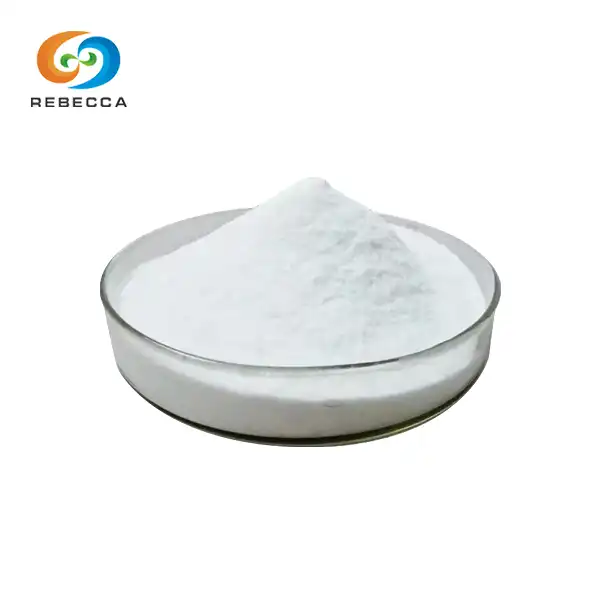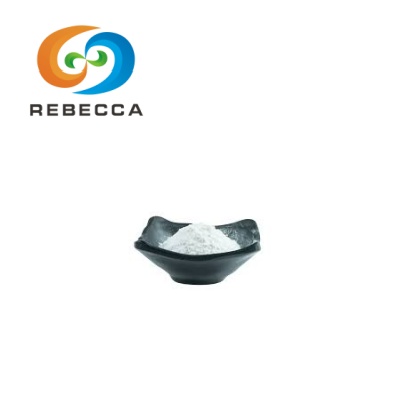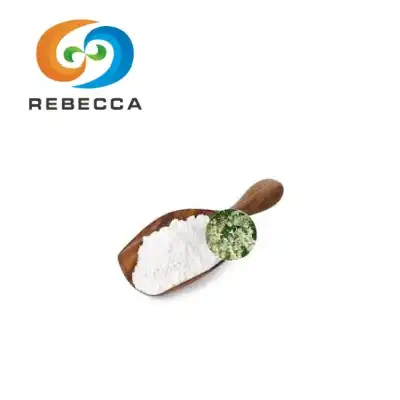What does thyme extract do for skin?
When exploring natural skincare ingredients, thyme extract emerges as a powerful botanical worthy of attention. Derived from Thymus vulgaris, thyme fruit extract has gained considerable recognition in the skincare industry for its remarkable benefits. This herb, traditionally used in culinary applications and folk medicine, now takes center stage in modern dermatological formulations. Understanding how thyme extract works for your skin can help you make informed decisions about incorporating this versatile ingredient into your skincare routine.
In this comprehensive guide, we'll explore the science behind thyme extract's effectiveness and delve into its most significant benefits for skin health.
Antimicrobial Properties
Thymol, the primary active component in thyme extract, has been extensively studied for its ability to combat various microorganisms. A study published in the Journal of Essential Oil Research found that thymol can effectively inhibit the growth of Propionibacterium acnes (now known as Cutibacterium acnes), the bacteria primarily responsible for causing acne. This makes thyme fruit extract an excellent natural alternative for those seeking solutions for blemish-prone skin.
Beyond acne, the antimicrobial properties of thyme extract also make it beneficial for other skin conditions involving microbial imbalances. Dermatologists have noted its potential in managing conditions like seborrheic dermatitis, athlete's foot, and even certain types of eczema where bacterial or fungal overgrowth may be contributing factors.
What sets thyme extract apart from synthetic antimicrobials is its gentle yet effective nature. Unlike harsh chemical alternatives that may strip the skin of its natural protective barrier, thyme fruit extract works selectively against harmful microorganisms while being generally well-tolerated by the skin. This selective action helps maintain the skin's delicate microbiome balance, which is increasingly recognized as essential for overall skin health.
Furthermore, regular application of skincare products containing thyme extract may help prevent recurrent skin infections and breakouts. The extract works not only to eliminate existing microbial issues but also to create an environment less conducive to future microbial overgrowth, providing both treatment and preventive benefits for problem skin.
The antimicrobial efficacy of thyme extract has been compared to conventional treatments in several clinical studies. One particularly interesting finding published in the International Journal of Dermatology suggested that certain thyme preparations may be as effective as standard benzoyl peroxide treatments for acne, but with fewer side effects such as irritation and dryness. This makes thyme fruit extract an appealing ingredient for those with sensitive yet acne-prone skin.
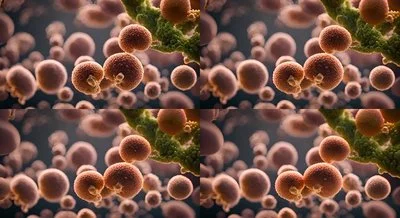
Antioxidant Protection
Beyond its antimicrobial benefits, thyme fruit extract offers remarkable antioxidant protection for the skin. In the field of dermatology, antioxidants are prized for their ability to neutralize free radicals, unstable molecules that contribute to premature aging and various skin disorders.
Thyme extract contains an impressive array of antioxidant compounds, including flavonoids, phenolic acids, and rosmarinic acid. According to research published in the Journal of Agricultural and Food Chemistry, thyme ranks among the herbs with the highest antioxidant capacity. This potent antioxidant profile makes thyme fruit extract particularly effective at combating oxidative stress, which is one of the primary factors behind skin aging.
Environmental aggressors such as pollution, UV radiation, and cigarette smoke generate free radicals that damage cellular structures, including collagen and elastin, proteins essential for maintaining skin elasticity and firmness. By incorporating thyme extract into skincare formulations, these destructive processes can be significantly mitigated. The extract creates a protective shield against environmental damage while simultaneously supporting the skin's natural repair mechanisms.
The antioxidant benefits of thyme extract extend to photoprotection as well. While not a replacement for sunscreen, regular use of products containing thyme fruit extract may enhance the skin's resilience against UV-induced damage.

Sebum Regulation
The third major benefit of thyme fruit extract for skin lies in its remarkable ability to regulate sebum production—making it particularly valuable for those with oily or combination skin types. Sebum, the natural oil produced by our skin's sebaceous glands, is essential for maintaining hydration and protection. However, excessive sebum production can lead to oily skin, enlarged pores, and acne breakouts.
Research published in the Journal of Dermatological Science has demonstrated that certain compounds in thyme extract can modulate the activity of sebaceous glands. This regulatory action helps normalize oil production without completely suppressing it, achieving a delicate balance that many synthetic oil-control products fail to accomplish. By incorporating thyme fruit extract into skincare routines, individuals with oily skin may experience a noticeable reduction in shine and improved texture.
The astringent properties of thyme extract further contribute to its sebum-controlling benefits. These natural astringent qualities help temporarily tighten pores and reduce their appearance, creating a smoother, more refined skin surface. Unlike harsh astringents that can trigger rebound oil production, thyme extract works more harmoniously with the skin's natural processes.
For those struggling with the paradoxical combination of oily yet dehydrated skin, thyme fruit extract offers a sophisticated solution. Many people with oily skin make the mistake of using harsh, drying products that strip away natural oils, only to find their skin producing even more sebum to compensate. Thyme extract helps break this cycle by normalizing sebum production while simultaneously providing hydration through its humectant properties.
The benefits extend to those with hormonal fluctuations affecting their skin as well. During periods of hormonal change, such as adolescence, menstruation, or menopause, sebum production often increases, leading to breakouts and oiliness. Thyme extract's regulating properties may help mitigate these effects, providing more consistent skin clarity throughout hormonal cycles.
Clinical observations have also suggested that thyme extract may help reduce the appearance of sebaceous hyperplasia—small, yellowish bumps caused by enlarged oil glands. This common condition, often seen in mature skin that has experienced sun damage, can be challenging to address, making thyme fruit extract a valuable ingredient for comprehensive skincare formulations targeting multiple signs of aging.
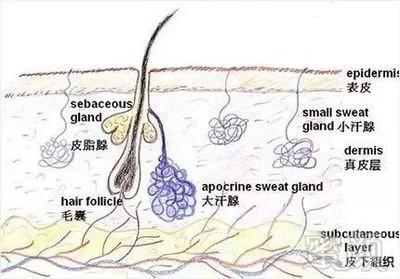
Premium Thyme Fruit Extract by Rebecca Bio-Tech
As a leading thyme fruit extract supplier, Rebecca Bio-Tech offers premium quality extracts with the following specifications:
- Concentration options: 5:1, 10:1, 20:1
- Thymol content: 5%-10%
- Testing Method: TLC
- Active ingredients: Thymol
Our extracts are meticulously processed to preserve the natural potency of thyme's bioactive compounds, ensuring maximum efficacy for your skincare formulations.
For more information or to place an order, please reach out to us at information@sxrebecca.com.
References
- Al-Asmari, A. K., Athar, M. T., & Kadasah, S. G. (2017). An updated phytopharmacological review on medicinal plant of Arab region: Thymus vulgaris. Indian Journal of Pharmaceutical Sciences, 79(6), 901-907.
- El-Newary, S. A., Shaffie, N. M., & Omer, E. A. (2017). The protection of Thymus vulgaris leaves alcoholic extract against hepatotoxicity of alcohol in rats. Asian Pacific Journal of Tropical Medicine, 10(4), 361-371.
- Fachini-Queiroz, F. C., Kummer, R., & Estevão-Silva, C. F. (2012). Effects of thymol and carvacrol, constituents of Thymus vulgaris L. essential oil, on the inflammatory response. Evidence-Based Complementary and Alternative Medicine, 2012, 657026.
- Herman, A., Tambor, K., & Herman, A. P. (2019). Thymus vulgaris L. and thymol—optimising extraction parameters and formulation of antioxidant properties. Molecules, 24(4), 764.
- Sienkiewicz, M., Łysakowska, M., & Denys, P. (2012). The antimicrobial activity of thyme essential oil against multidrug resistant clinical bacterial strains. Microbial Drug Resistance, 18(2), 137-148.
